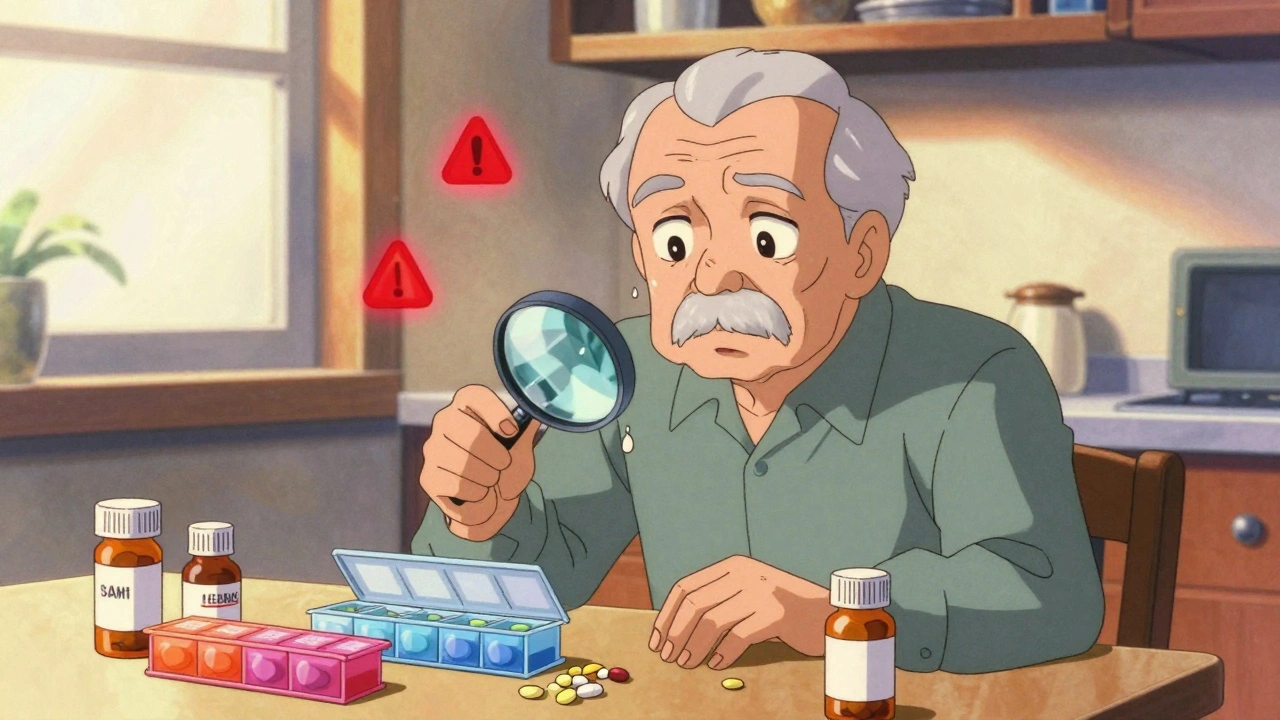Older adults: Practical medication tips and safety
Older adults often take several medicines. That raises the chance of drug interactions, confusing schedules, and side effects that lead to falls or hospital visits. This page gives clear, practical steps you can use today to make medicines safer and easier to manage. You’ll also find links to guides on specific drugs and safe online buying.
Hands-on steps to manage medicines
Carry a current medicine list to every appointment. Include prescriptions, over-the-counter drugs, vitamins, and any herbal products. Review the list with your doctor or pharmacist at least once a year or after any change. Using one regular pharmacy helps because pharmacists can spot interactions, duplicate therapy, and missed refills.
Start low and go slow. Kidney and liver function change with age and can slow drug clearance. That means doses for blood pressure meds, some heart drugs, diuretics, and many pain or sleep medicines may need to be smaller. If a new drug causes dizziness, confusion, or balance problems, call your provider—those symptoms often mean a dose or drug choice should change.
Make daily routines simple: use a pill organizer, set phone alarms, or ask your pharmacy for blister packs. Keep medicine bottles until you understand each drug, and add short notes about timing or food requirements. These small habits cut the risk of missed doses and dangerous double-dosing.
Buying meds safely and saving money
Buying online can save money but be careful. Only use pharmacies that ask for a prescription, list a real business address, and offer a phone number. Avoid deals that look too good to be true and don’t buy from sites that won’t answer basic questions. Read reviews and check for pharmacy seals when possible. Our articles cover safe online options for common drugs and tips for avoiding scams.
Want to save money? Compare generic options, discount programs, and coupons. Talk to your doctor about cheaper equivalents and check patient assistance programs for costly meds. We have guides that compare discount services and show drug-specific saving tips so you can get the same treatment for less.
Be cautious with supplements. Herbal products like Gotu Kola or other nonprescription remedies can interact with blood thinners, blood pressure medicines, and diabetes drugs. Always tell your provider about any supplements before starting them.
Watch for red flags: sudden shortness of breath, new confusion, severe bleeding, fainting, or falls after a medicine change. For blood thinners, report unusual bruising or dark stools right away. If you notice these signs, seek medical help quickly.
Use the guides on this site to learn more about specific medicines, safe online buying, and saving strategies. Then talk with your healthcare team about the simple changes you can make today. Small steps often prevent big problems and help you stay safer and more independent.

